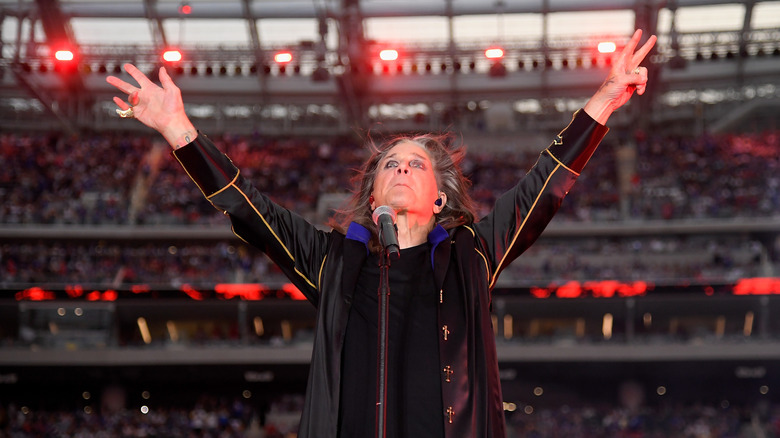Ozzy Osbourne's Cause Of Death Explained
Although heavy metal icon Ozzy Osbourne had publicly shared his Parkinson's disease diagnosis, his official cause of death has been revealed. According to his death certificate, the cause of death was listed as a heart attack (via The New York Times). The certificate also cited cardiac arrest, coronary artery disease, and Parkinson's disease as contributing factors.
A heart attack — also known as acute myocardial infarction — is often confused with cardiac arrest, but the American Heart Association says that the two are different but related. Cardiac arrest can occur suddenly due to an electrical problem in the heart, causing it to stop beating. A heart attack, on the other hand, happens when blood flow to the heart is blocked, though the heart may continue to beat. These two conditions are linked because a heart attack can lead to cardiac arrest.
Coronary artery disease develops when fat and cholesterol build up in the arteries that supply blood to the heart. This buildup narrows the arteries, reducing blood flow. If an artery becomes completely blocked, a heart attack can occur.
Did Parkinson's Disease affect Ozzy Osbourne's death?
Ozzy Osbourne had his share of health challenges over the years. The rock star was diagnosed with Parkinson's disease in 2003 and told People that he was eager to tour again. Although past accidents and falls eventually required surgery to improve his mobility, Parkinson's disease left him walking with a cane. He also developed speech difficulties, which are a common symptom of the condition.
By 2025, Osbourne said he could no longer walk, but he was grateful to be alive. "I may be moaning that I can't walk, but I look down the road and there's people that didn't do half as much as me and didn't make it," he said on his SiriusXM radio show (via The Sun). Osbourne died just weeks after his farewell show in July 2025.
People with advanced Parkinson's may experience significant mobility challenges, cognitive decline, and psychiatric conditions such as depression. Other symptoms can include dizziness, constipation, and fatigue. According to the American Parkinson Disease Association, people often die from complications related to Parkinson's rather than the disease itself. These complications can include fatal falls, pressure ulcers, pneumonia, or other infections. In Osbourne's case, it's unlikely that Parkinson's directly contributed to his heart attack.

